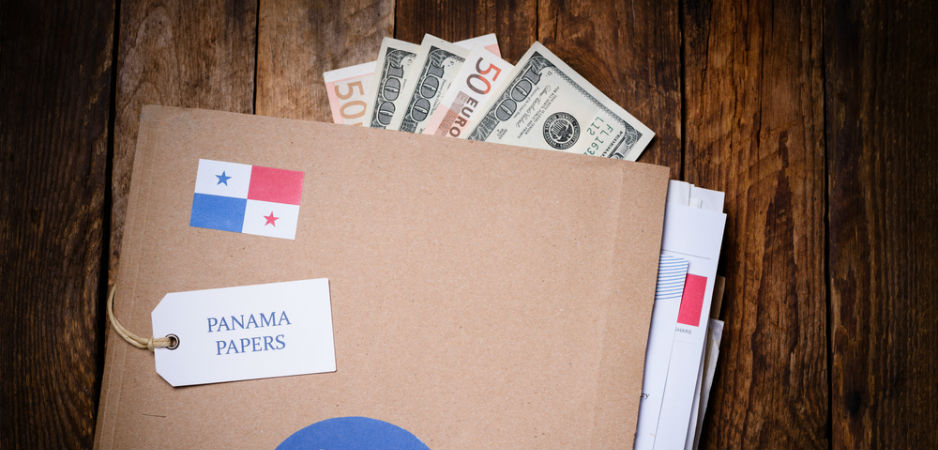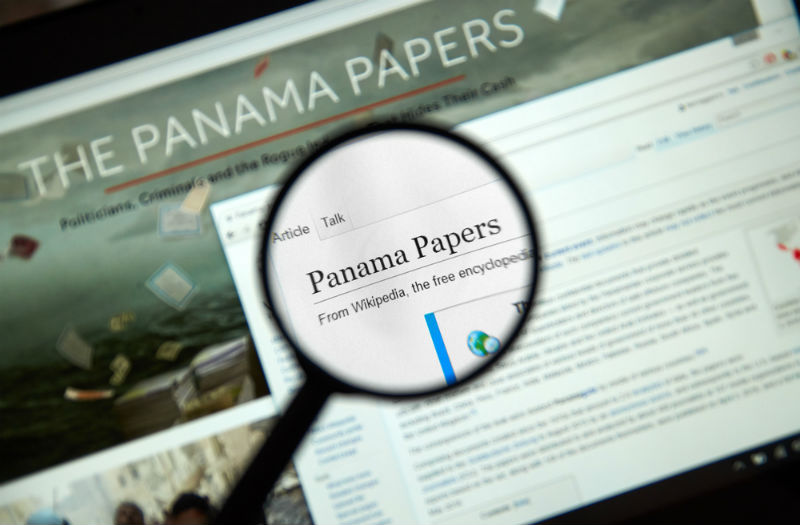The political fallout of the Mossack Fonseca data leak will lead to broader challenges for businesses, with likely responses from regulators in the months ahead.
In the biggest data leak in history, German newspaper Sueddeutsche Zeitung, along with the International Consortium of Investigative Journalists, on April 3 released findings on offshore companies based on confidential emails, bank records and client information belonging to Panama-based law firm Mossack Fonseca. The data, which amounts to about 11.5 million files dating back nearly 40 years, revealed the offshore holdings of at least 12 current and former world leaders, including several already tainted by past accusations of corruption.
The findings exposed how hundreds of influential people and international companies across the world have used offshore companies to avoid taxes and facilitate financial fraud. The magnitude of the revelations has prompted authorities in Australia, New Zealand, France and the United Kingdom to launch probes into possible financial wrongdoing. While it will take several months for the full extent of the repercussions to become apparent, the scandal has already threatened political stability and led to anti-government protests in some countries. It has also highlighted major financial, legal and reputational considerations for implicated individuals and companies.
Political reverberations
The initial revelations could stoke public discontent and unrest in countries where politicians are already grappling with allegations of corruption and—in some extreme cases—threaten political stability, as currently witnessed in Iceland. So far, current and former leaders from countries such as Ukraine, Qatar, Sudan and Spain, and the associates and family members of prominent politicians like Chinese President Xi Jinping and Russian President Vladimir Putin, have featured in the leaked documents.
Multiple examples in recent years have demonstrated the growing propensity for large-scale popular protests against political corruption, and the Mossack Fonseca revelations will likely inspire major demonstrations, as already seen in Iceland on April 5. In particular, countries badly affected by fiscal austerity or slowing economic growth are likely to see an increase in anti-government rallies. Political opponents could exploit the episode to maintain pressure on those in power for some time to come, potentially initiating legal investigations into implicated politicians or forcing the resignations of suspects. Some of the countries that are likely to face political turmoil due to Mossack Fonseca data breach include Iceland, Pakistan, Argentina, Brazil, Malaysia and Mexico.
Iceland
The fallout from the data leak in Iceland demonstrates the direct threat to the futures of some governments, creating an unpredictable political environment in the affected countries. Large-scale public protests along with sustained pressure from opposition parties forced Prime Minister Sigmundur Gunnlaugsson to resign on April 5, though reports the following day claimed he had in fact stepped aside temporarily.
The premier faced significant backlash after leaked documents showed that in 2007, he and his wife bought offshore company Wintris, which had substantial investments in the bonds of three major Icelandic banks that collapsed during the 2008 financial crisis. Since taking office in 2013, Gunnlaugsson has been involved in negotiations with creditors of the banks, which put him in a position to influence the value of the bonds that Wintris held.
Pakistan
According to leaked documents, all four of Pakistani Prime Minister Nawaz Sharif’s children either owned or were part of various offshore companies. Sharif and his family have previously faced corruption allegations, although they have been cleared of any wrongdoing.
The latest revelations could reignite public skepticism and provoke a backlash from political opponents. Pakistan Tehreek-e-Insaf (PTI), the political party which in 2014 led nationwide protests against alleged vote-rigging in elections, has already called on the country’s tax authorities to launch a probe into the assets of the premier’s family. PTI’s protests in 2014 lasted more than four months and attracted tens of thousands of people in several cities, including Islamabad and Lahore.
Argentina
Files showed that Argentine President Mauricio Macri, who took office in December 2015, was the director of a Bahamas-based company that was dissolved in 2009, a fact that he failed to disclose while running for office. The Macri administration has said that the president had never been a shareholder in the company, but played an “occasional role” as CEO.
The revelations provide an opportunity for government opponents to mobilize against Macri early in his presidency, at a time when fiscal reforms are already fueling public grievances among some sectors of the population.
Brazil, Malaysia and Mexico
The governments of Brazil, Malaysia and Mexico have faced unrest over public corruption in the past 12 months, and the leak threatens to strengthen public disaffection toward the political elite.
Malaysian premier Najib Razak—who has spent much of the past year reeling under allegations that he embezzled money from debt-laden and state-funded 1MDB—could face renewed criticism following the disclosure that his son was involved in two offshore companies set up after Najib came to power. It could lead to fresh protests and lend impetus to opposition calls for the premier’s resignation.
The findings exposed how hundreds of influential people and international companies across the world have used offshore companies to avoid taxes and facilitate financial fraud.
In Mexico, President Enrique Peña Nieto has just ridden a wave of public mistrust over a scandal linking the allocation of government construction permits and personal house purchases. The revelation that Juan Armando Hinojosa Cantú—one of the country’s richest tycoons also involved in the previous scandal—has allegedly hidden $100 million in offshore companies could rekindle protests, especially as his company has secured tens of high-value government contracts.
For Brazil, the leaked documents widen the scope of the Petrobras corruption scandal that has gripped the country and threatened to bring down the government of President Dilma Rousseff. Three months after Brazilian authorities had charged two employees of Mossack Fonseca with money laundering in connection with Petrobras, Eduardo Cunha, the speaker of the lower house of Congress, as well as 57 people already linked to the scandal featured in the law firm’s files. Although the leak did not implicate any politicians from Rousseff’s Workers Party, it will fuel public disaffection toward politicians inside the country, sentiment that has contributed to anti-government protests that at their peak have attracted as many as 2 million people.
Challenges for businesses
For corporates, the leak presents notable reputational and legal risks. In the short term, businesses implicated could face reputational risks from targeted campaigns by activists, similar to those that were directed at companies such as Amazon, Google and Starbucks in 2013 for tax avoidance on their UK sales. In the long run, legal scrutiny could compound reputational challenges, and companies will also need to bear the associated financial costs.
Following the leak, UK tax authorities have requested access to documents from media organizations involved in publishing findings, and the HM Revenue and Customs has said that multiple offshore companies, including some based in Panama, are currently the subject of “intensive investigations.” The Australian tax regulator is investigating 800 individual taxpayers who are residents of the country and whose names have featured in leaked documents.
Any association with a Panama-based entity for the purposes of wealth management is likely to present major reputational challenges for businesses, given that the country has some of the world’s strictest financial secrecy laws. Panama also has a poor record of compliance with international regimes designed to tackle financial crime: It has implemented just one of the 40 recommendations made by the International Monetary Fund in 2014 to combat money laundering and terrorism financing.
Until February, Panama was on a Financial Action Task Force “gray list” for money laundering. The country has also resisted calls to comply with the global tax transparency initiatives proposed by the Organization for Economic Co-operation and Development (OECD). Bahrain, Nauru and Vanuatu, which have financial secrecy laws similar to those in Panama, are also likely to come under pressure to boost compliance with OECD rules, which facilitate the exchange of tax data among countries. UK offshore jurisdictions such as the Cayman Islands, Jersey and British Virgin Islands could see increased calls from London to bolster transparency regarding the ownership of companies registered in those territories.
Offshore financial services providers could also face renewed scrutiny. Leaked documents show that banks and law firms had often failed to follow legal requirements that help ensure that their clients do not engage in illicit activities such as political corruption or tax evasion. Findings have revealed cases of money laundering and instances where international economic sanctions have been flouted. Major global banks, still recovering from the effects of the 2008 global financial crisis, are likely to face the spotlight again, given that it is virtually impossible to set up a shell or offshore company without the involvement of financial institutions. According to leaked documents, more than 500 banks, including big names such as HSBC and UBS, and their subsidiaries registered nearly 15,600 shell companies with Mossack Fonseca.
Reverberations
In addition to the aforementioned political and reputational considerations for implicated individuals and companies, the revelations could provide a catalyst for coordinated international efforts against tax avoidance, as was seen in the aftermath of the 2008 financial crisis. For example, British Prime Minister David Cameron plans to host a summit in May in London to discuss the issue of offshore assets, while Norway has invited the heads of the boards of top companies to talks on corruption in June even as the leaked documents showed that the country’s top bank DNB—which is 34%-owned by the state—had helped clients set up offshore companies in the Seychelles.
Investigations already launched by countries into individuals named in the documents could also take on a criminal angle if instances of financial wrongdoing are uncovered. Leaked files show that Ponzi-schemers, drug kingpins, tax dodgers and at least one jailed sex offender had set up offshore companies through Mossack Fonseca.
Finally, the data breach could encourage further exposés. Although the exact source of the leak is not known—Mossack Fonseca has claimed that it suffered a successful but “limited” hack—the episode raises concerns of both insider leaks and cyber vulnerabilities, bringing renewed focus on the strength of corporate cyber security systems and threat from internal staff information breaches.
Future disclosures are likely, especially should the leak form part of a campaign of ethical or politically motivated hacking or encourage others to disclose private corporate data at other firms. Added scrutiny of other companies operating in the same space as Mossack Fonseca could see them take the initiative to disclose information in an effort to limit damage or be subject to targeted campaign activity in upcoming months. Even in isolation, the scale of the leak means that further political and legal fallout from this episode is likely.
*[This article is based on a report by PGI Intelligence.]
The views expressed in this article are the author’s own and do not necessarily reflect Fair Observer’s editorial policy.
Photo Credit: Nevodka / Olivier Le Moal / Dennizn / Shutterstock.com
 We bring you perspectives from around the world. Help us to inform and educate. Your donation is tax-deductible. Join over 400 people to become a donor or you could choose to be a sponsor.
We bring you perspectives from around the world. Help us to inform and educate. Your donation is tax-deductible. Join over 400 people to become a donor or you could choose to be a sponsor.
Support Fair Observer
We rely on your support for our independence, diversity and quality.
For more than 10 years, Fair Observer has been free, fair and independent. No billionaire owns us, no advertisers control us. We are a reader-supported nonprofit. Unlike many other publications, we keep our content free for readers regardless of where they live or whether they can afford to pay. We have no paywalls and no ads.
In the post-truth era of fake news, echo chambers and filter bubbles, we publish a plurality of perspectives from around the world. Anyone can publish with us, but everyone goes through a rigorous editorial process. So, you get fact-checked, well-reasoned content instead of noise.
We publish 2,500+ voices from 90+ countries. We also conduct education and training programs
on subjects ranging from digital media and journalism to writing and critical thinking. This
doesn’t come cheap. Servers, editors, trainers and web developers cost
money.
Please consider supporting us on a regular basis as a recurring donor or a
sustaining member.
Will you support FO’s journalism?
We rely on your support for our independence, diversity and quality.







